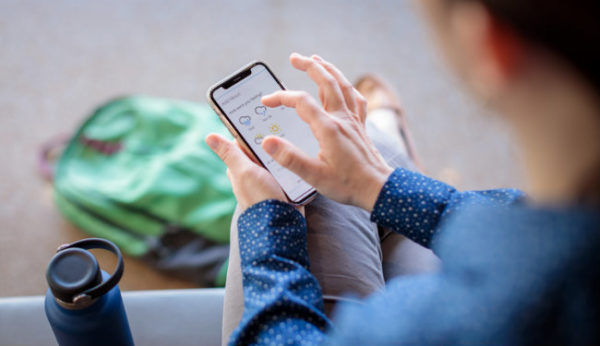COVID-19 has altered many facets of life for members of the Vanderbilt community in recent weeks. These changes can result in stress, nervousness, fear or anxiety. To support community members during this time, the Office of Student Care Coordination, the University Counseling Center, the Center for Student Wellbeing and the Employee Assistance Program have compiled tips on ways individuals can take care of their mental health and well-being throughout the COVID-19 pandemic.
8 TIPS FOR SUPPORTING MENTAL HEALTH DURING COVID-19
-
Create and maintain routine.
Schedule your time, take breaks, maintain a routine sleep schedule, take advantage of sleep hygiene techniques, and consider writing out your schedule then sharing with a friend or family member to increase accountability. The absence of your typical routine gives you an opportunity to develop a new routine.
-
Engage in mindful awareness practices.
When we experience stress, we may find our minds “racing,” often with unhelpful thoughts. These thoughts can lead to more stress, catching us in quite a loop. Break the pattern—make a firm plan to practice mindfulness.

Sit quietly and allow the body to breathe deeply (full inhales in, full exhales out), then gently invite your mind to return from the races and join you in the present moment as you sit and breathe. Invite your mind back kindly as many times as needed. Repeat the practice daily for 10 to 15 minutes or more.
For guided mindfulness practice, follow along with the Health Plus Mindful Break video or download the free Insight Timer app. You can also check out Headspace, Calm and many other free mindfulness practices. Vanderbilt students also have free access to SilverCloud, a tool that provides modules to help manage anxiety or depression, develop skills to manage stress, and promote good sleep hygiene.
-
Maintain exercise and physical activity.
Be creative with your workouts. Check out YouTube, fitness apps or your local gym for free online classes. Get outside when you can while maintaining social distancing.
-
Balance nutrition.
Cut yourself some slack and indulge in cravings, but balance this with nutritional foods. Good nutrition supports your immune system. Ask for help if you’re concerned about food insecurity.
-
Set boundaries for social media consumption.
Stay informed but set appropriate limits; know the facts, but avoid catastrophic and all-or-nothing thinking.
-
Social distance, but connect emotionally.
Use Facetime, Zoom and other tools to reach out to friends and family, and schedule times to connect with them.
-
Continue nurturing your well-being.
Reach out for mental health support when needed. It’s common for alcohol and drug use to increase during times of stress. Finding a balance as well as support and accountability, especially for those in recovery, can be helpful.
-
Find ways to stay accountable.
Share your wellness plan with a friend or family member who can help. Think of the different areas of your life that may require different accountability plans—physical, emotional, spiritual, academic and professional.
If you are feeling anxiety or stress related to the coronavirus, know that there are resources and services to help you manage your concerns.
Students
- University Coronavirus (COVID-19) webpage on student care resources through the Student Care Network
- Dean of Students Managing Fears and Anxiety Related to Coronavirus page
Faculty, Staff and Postdoctoral Scholars
- Employee Assistance Program
- University Coronavirus (COVID-19) webpage with staff and faculty support information
To stay informed on updates and announcements from the university related to COVID-19, please visit vu.edu/coronavirus.